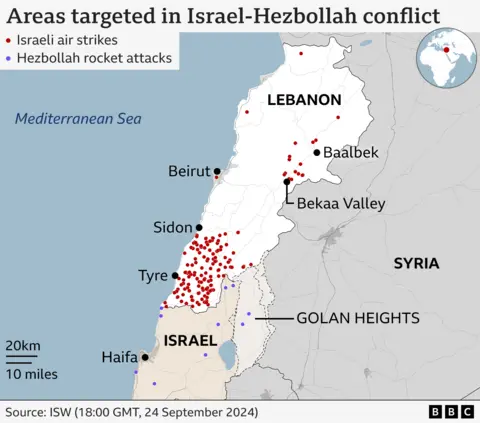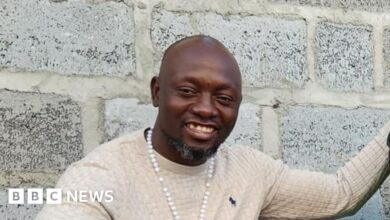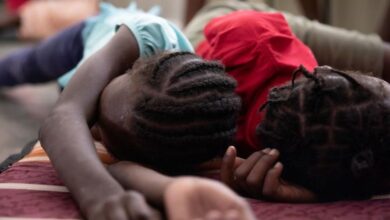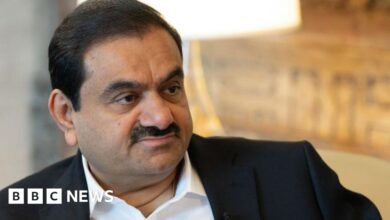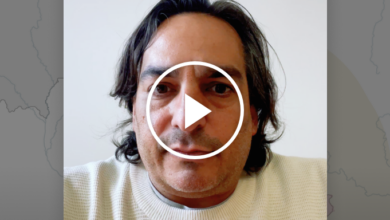Lebanon attacks prepare for ground offensive
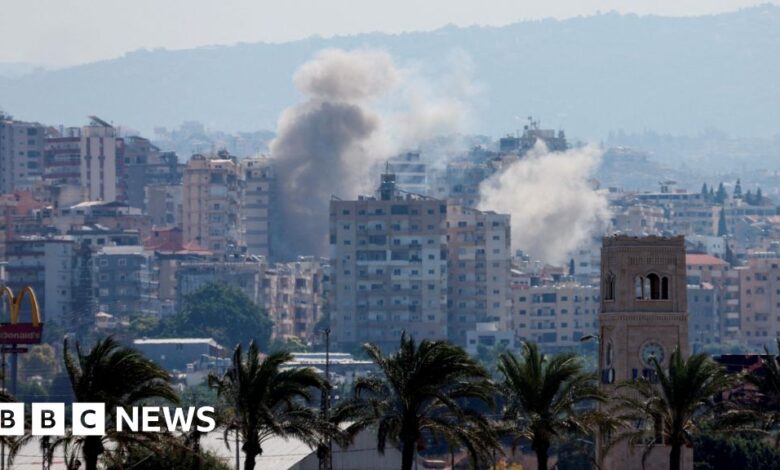
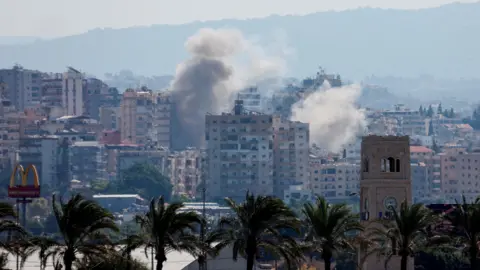 Reuters
ReutersIsrael’s army chief has told troops that widespread air strikes in Lebanon targeting the militant group Hezbollah could open the way for them to “infiltrate enemy territory”.
“You hear jets overhead; we have been attacking all day. This is both to prepare the ground for your infiltration capabilities and to continue to degrade Hezbollah,” said Lieutenant General Herzi Halevi.
Lebanon’s health minister said more than 50 people were killed in air strikes on Wednesday that the Israeli military said targeted Hezbollah’s intelligence agency, as well as launch pads and weapons depots.
Diplomatic efforts are being stepped up to defuse the hostilities, with France and the United States proposing a 21-day ceasefire.
Lieutenant General Halevi’s comments are the clearest indication yet from a senior figure that a ground invasion of Lebanon could be imminent.
“We continue to attack and hit them everywhere,” he told soldiers of the 7th Brigade taking part in a military exercise on Israel’s northern border on Wednesday – in a statement quoted by the Israel Defense Forces (IDF).
“The goal is clear – to bring the people of the North back safely. To achieve that, we are preparing a course of exercises, which means your troops… will enter enemy territory.”
Lieutenant General Halevi said the army would “destroy the enemy” and its infrastructure.
There is no indication that Israel is about to enter Lebanon and the US Pentagon said on Wednesday that it did not appear to be “imminent”.
But the IDF chief of staff’s remarks came shortly after the IDF called up two reserve brigades to “carry out combat missions in the northern region.”
When a BBC team visited an Israeli border town on Wednesday, the army announced that Hezbollah fighters must move away from the border, to positions north of the Litani River, as required by a UN resolution passed in 2006.
Israel’s allies, including the United States, say they are working to avoid an all-out war in the region.
Several media outlets reported on Wednesday that senior US officials were trying to broker a short-term truce between the two sides.
French President Emmanuel Macron met US President Joe Biden at the United Nations General Assembly in New York to discuss efforts to secure a ceasefire.
Immediately after the talks, France said the two countries had proposed a “temporary ceasefire” for 21 days “to facilitate negotiations”.
“There can be no war in Lebanon. This is why we call on Israel to end this escalation in Lebanon and call on Hezbollah to stop firing missiles at Israel,” Macron told the United Nations.
UN Secretary-General Antonio Guterres called for an immediate ceasefire and said “hell is raging”.
Israel’s special envoy to the United Nations, Danny Danon, said they were grateful for diplomatic efforts to avoid escalation but would use “all available means, under international law, to achieve their objectives”.
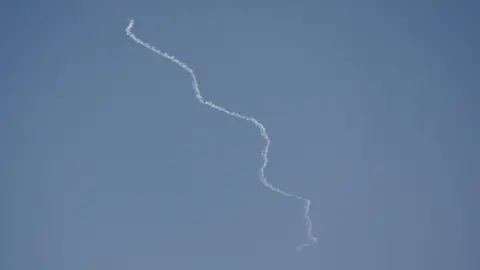 Reuters
ReutersCross-border fighting continued on Wednesday, as Hezbollah said it had targeted the headquarters of Israel’s Mossad intelligence agency with a missile fired towards Tel Aviv – the first time Hezbollah has targeted the densely populated area.
It was intercepted by air defenses and there were no reports of damage or casualties. The launcher was later destroyed in an airstrike, the IDF said.
IDF spokesman Lieutenant Colonel Nadav Shoshani said the missile was headed “towards a civilian area in Tel Aviv”, noting that “the Mossad headquarters is not located in that area”.
Hezbollah also fired dozens of rockets into northern Israel, wounding two people.
Meanwhile, the IDF said Israeli warplanes struck more than 280 “Hezbollah terrorist targets” in the latest wave of airstrikes on Lebanon.
Lebanese Health Minister Firass Abiad told reporters that the airstrikes killed at least 51 people and wounded 223, without specifying how many were civilians or militants.
The Health Ministry reported deadly Israeli strikes in southern areas including Joun, in the Chouf Mountains near the southern city of Sidon, as well as Maaysrah, in another mountainous region north of Beirut, and in the northern Bekaa Valley.
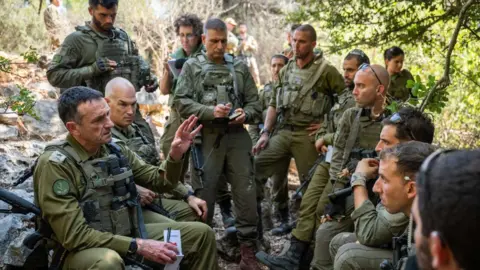 Israel Defense Forces
Israel Defense ForcesMore than 600 people have been reported killed across Lebanon since Monday, when Israel began a fierce air campaign aimed at destroying what it said was infrastructure built by Hezbollah since they last fought in 2006.
According to the United Nations, another 90,000 people in Lebanon have been displaced, adding to the 110,000 who had already fled their homes before the escalation. Nearly 40,000 people are living in shelters across the country.
Nearly a year of bloody cross-border fighting sparked by the Gaza war has also displaced some 70,000 people in northern Israel, and the Israeli government and military say they want to ensure their safe return.
Hezbollah says it is attacking Israel in support of its Palestinian ally, Hamas, and will not stop until there is a ceasefire in Gaza. Both groups are backed by Iran and are considered terrorist organizations by Israel, Britain and other countries.
The incident comes after an unprecedented wave of attacks on Hezbollah.
Last week, 39 people were killed and thousands injured when pagers and walkie-talkies used by Hezbollah members to communicate exploded in two waves across Lebanon. Israel is believed to have been responsible for the attacks.
Then, an Israeli airstrike on Friday on the group’s stronghold of Dahieh, south of Beirut, essentially wiped out the chain of command of the group’s main fighting unit, the Radwan Force. The group confirmed that one of its top military leaders, Ibrahim Aqil, was among the 55 killed.
